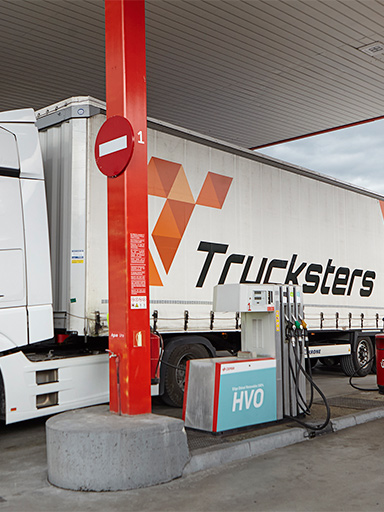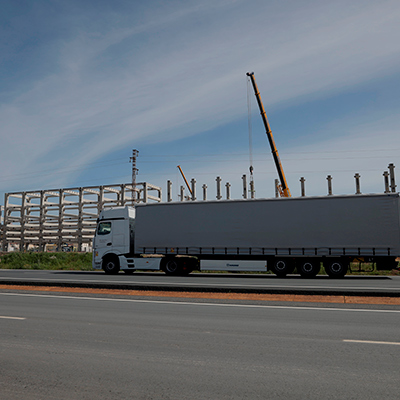- Trucksters' trucks will use 100% renewable diesel (HVO) from Cepsa to operate DHL's international routes, sustainably connecting the north of Spain with Belgium, the Netherlands, Luxembourg and Poland in both directions
- By using this biofuel, which can reduce CO2 emissions by up to 90% throughout its life cycle compared to conventional diesel, companies boost their commitment to decarbonizing road transport
- The energy company produces this biofuel, which is compatible with current diesel engines, from used cooking oils, thus promoting the circular economy
Cepsa produces this 100% renewable diesel at its La Rábida Energy Park (Huelva) from used cooking oils. It is a second-generation biofuel (2G) that not only reduces CO2 emissions without having to make changes in vehicles, but also promotes the circular economy.
Álvaro Guerreiro, International Sales Manager at Trucksters, notes that “this alliance with Cepsa and DHL reaffirms our commitment to sustainability in road transport, while providing the best service to our customers. At Trucksters, we fight every day to implement real change within the sector, and thanks to DHL's great innovative spirit, we have successfully carried out this project together, thus laying a solid foundation on which to build the sustainable future that Europe needs.”
Cedric Vigneau, Cepsa's Director of Fleets & CRT, highlighted: “At Cepsa, we make it easier for our customers to decarbonize their operations so we can move together towards sustainable mobility. To achieve this, we offer different solutions adapted to their needs. One of the most immediate alternatives is HVO, a biofuel that we produce in our facilities from used cooking oils. It achieves a reduction of up to 90% in CO2 emissions throughout its life cycle compared to traditional fuels without making any changes to current diesel engines.”
Rubén Gavela, general director of DHL Freight Iberia, stated that “this is one more step in the firm purpose of DHL Freight and the DHL Group as a whole to commit to sustainability and the decarbonization of transport. Investing in green logistics is an unavoidable need in the market and a competitive advantage as this type of transportation solutions become a greater priority for our clients.”
In Spain, road transport emissions account for 92.6% of total CO2 emissions from all forms of transport, according to data provided by the Transport and Logistics Observatory in Spain of the Ministry of Transport, Mobility and Urban Agenda (MITMA).




